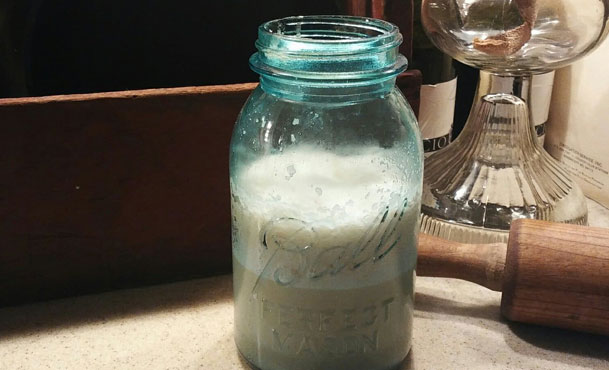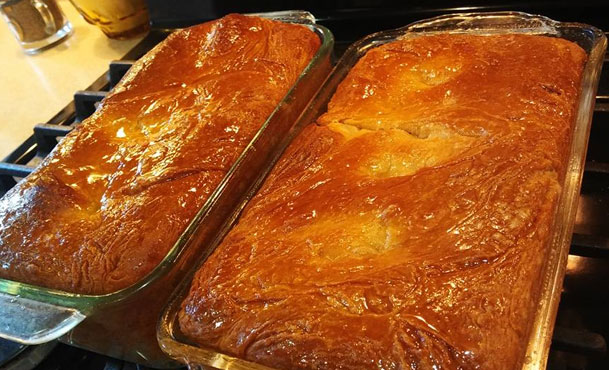
My mom always told me as a child to never touch sourdough bread starter with a metal spoon. The metal would interact with the yeast and destroy its ability to rise. I've also read the same words in cookbooks.
As I got older, I questioned this rule because I didn't understand how metal would destroy yeast. Until recently this was brought back to my attention because I never had a solid answer. How does metal effect yeast?
I finally have an answer.
I don't have an exact date, so I'm going to say "a VERY long time ago." Emphasize on the word "very." Probably before Facebook or perhaps Tweeter (jokingly). Definitely before JoJo Siwa!
Metals back then were not safe to use for food, especially with acidic liquids. Acidic liquids on metals rusted. The metal was leached into the starter and discolored the starter or cause the food to taste pretty bad. Eventually people caught on and realized that metal wasn't safe to use because it would destroy their product.
Glazed clay, wood, or glass became a better substitute for starters. As time progressed, people connected to metal and starter as bad components, when actuality it was the type of metal they used back then. The history wasn't connected to the story of yeast and food safety, creating half-truths.
The metals we use today are perfectly safe for starters. Yeast can become damaged based on temperature or if the yeast was bad to begin with. Water that is too cold or too hot can affect the yeast and damage the ability to rise.

